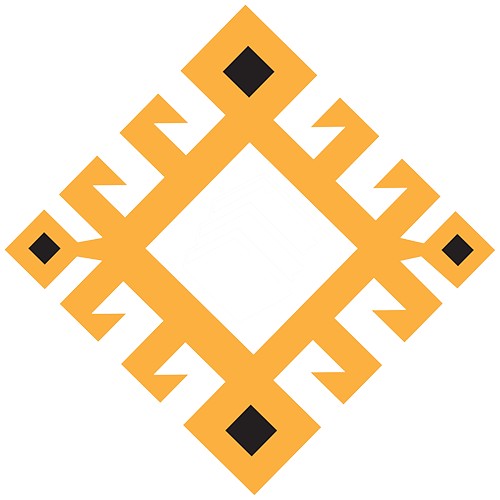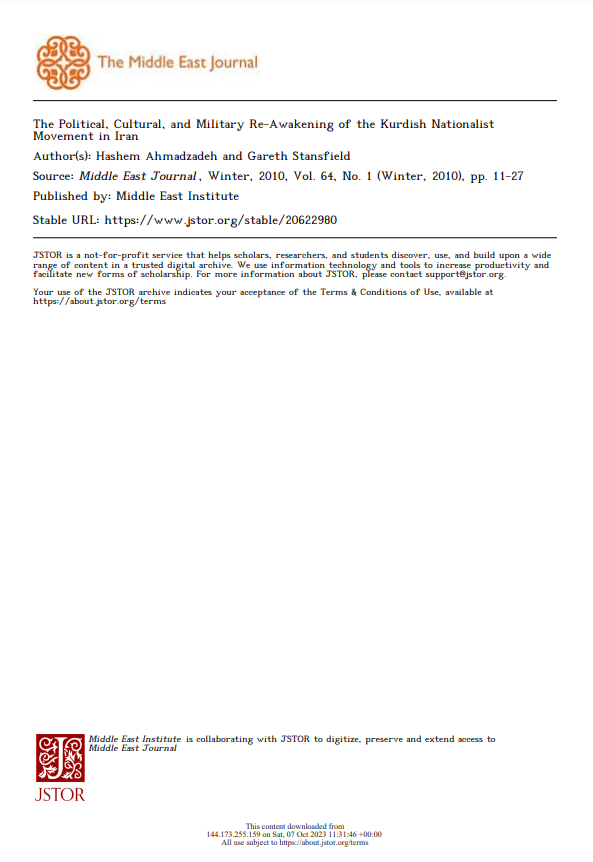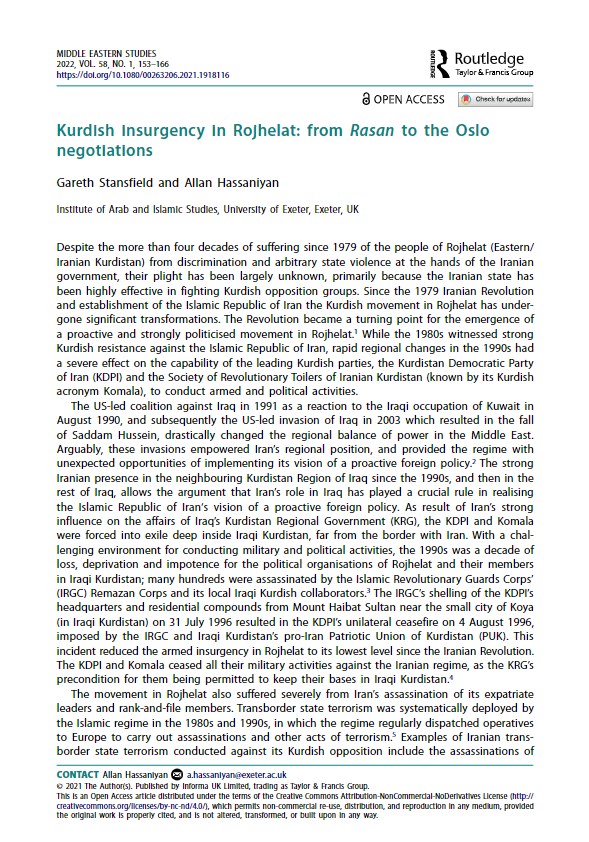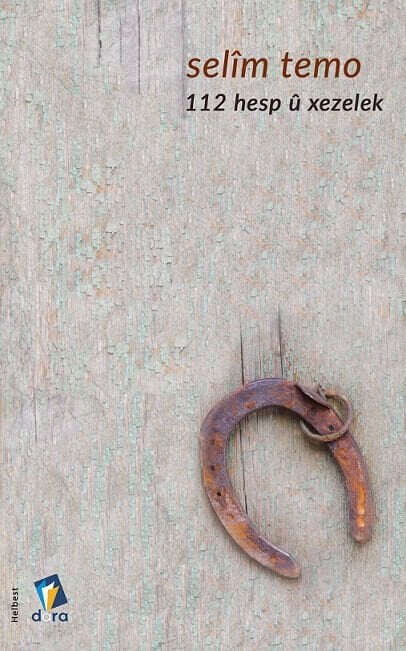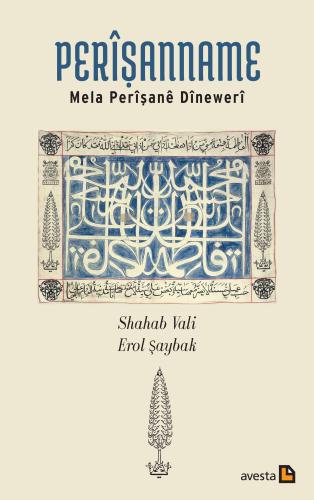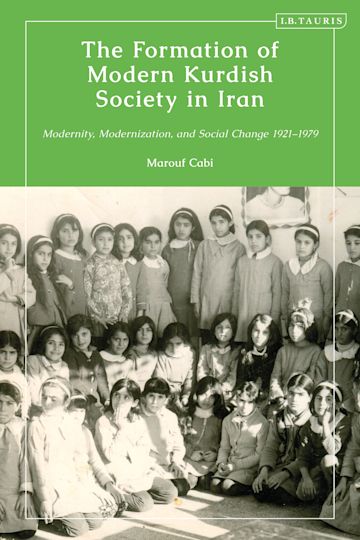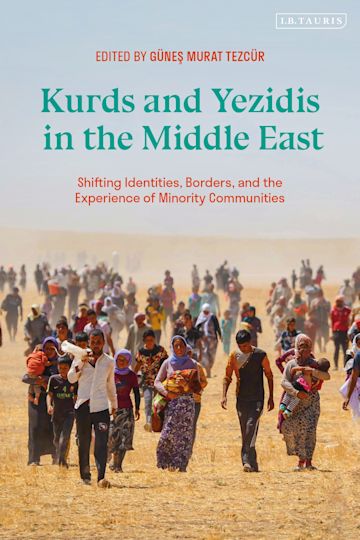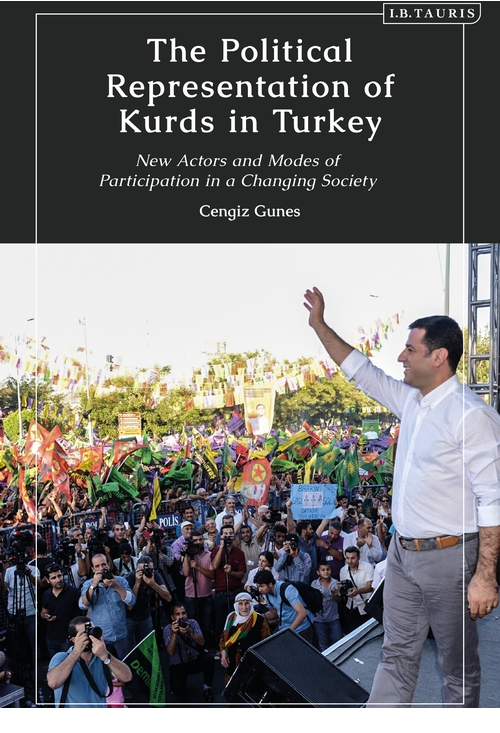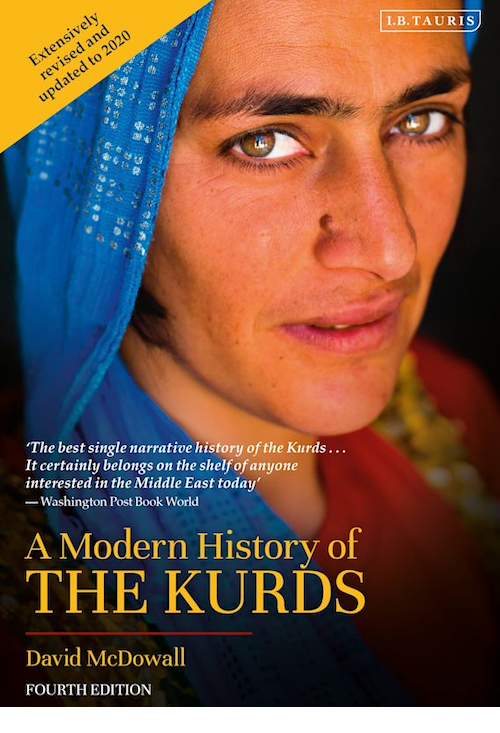Search Results
Content Type: Journals
Abstract / Description
Hejmara kanûna pêşîn, kanûna paşîn û sibatê ya kovara “Folklora Me”yê çap bû. Folklora Me di her hejmareka xwe da, cih dide xebatên berhevkarîyê û hêmanên dîtbarî. Di hejmara 10ê ya kovarê da dîsa nivîsên ji beşên curbicur yên folklorê hene. Xebroşka Mehpûs Serhedîyî ya Qerejdaxê, xebroşka Kurdjan Sorîyî ya
Content Type: Journals
Abstract / Description
Hejmara adar, nîsan û gulanê ya kovara “Folklora Me”yê çap bû. Di hejmara 9ê ya kovarê da dîsa nivîsên ji beşên curbicur yên folklorê hene. Hin nivîsên ku di vê hejmarê da hatine weşandin ev in: “Li Gor Teorîya Etnosembolîzmê Destana Kawayê Hesinkar”, “Bawerîyên Gelêrî yên Agirîyê”, “Mamikên Berîya Mêrdînê”,
Content Type: Articles
Abstract / Description
This article aims to shed light on the modern history of the Kurds in Iran, with particular reference made to the main Kurdish political and social movements of the 20th century following World War I and the establishment of an Iranian nation-state. The modernization and centralization of the new state
Content Type: Articles
Abstract / Description
This article sheds light on recent political developments in Rojhelat (Eastern/Iranian Kurdistan), focusing on the activities of Rojhelat’s leading political parties. This study argues that the existing situation in the area is a product mainly of the shift in Rojhelat’s mainstream political organisation, the Kurdistan Democratic Party of Iran, in
Content Type: Literatures
Abstract / Description
vejiyam, min şairekî bêwar hilbijart wek deng û siwarî min her şev hevalhespên xwe şandin xewna wî ku bêjin em ne neynika însên in û ti şehîn careka din dubare nabe ku îro hemû hesp girtî bin, naxwe me daye cizayê sûcekî wekhev in kevir û qral li ber rojê,
Content Type: Literatures
Abstract / Description
Perîşanname, xaseten li Rojhilat û Bakurê Kurdistanê bûye mijara gelek lêkolînên edebî û mensûbiyeta ‘tevgera hûrûfiyye’ ya muellifê wê Mela Perîşanê Dînewerî jî tê de, gelek îddiayên mezin li ser vê berhema balkêş hatine nivîsîn. Pisporên edebiyata kurdî li ser cureya metnê û nasnameya muellifê wê, fikrên dûrî hev pêşkêş
Content Type: Books
Abstract / Description
Although the Kurds have attracted widespread international attention, Iranian Kurdistan has been largely overlooked. This book examines the consequences of modernity and modernisation for Iran’s Kurdish society in the 20th century. Marouf Cabi argues that while state-led modernisation integrated the Kurds in modern Iran, the homogenisation of identity and culture
Content Type: Books
Abstract / Description
The diversity of Kurdish communities across the Middle East is now recognized as central to understanding both the challenges and opportunities for their representation and politics. Yet little scholarship has focused on the complexities within these different groups and the range of their experiences. This book diversifies the literature on
Content Type: Books
Abstract / Description
Throughout the 1960s and 1970s, Turkey relentlessly persecuted any form of Kurdish dissent. This led to the radicalisation of an increasing number of Kurds, the rise of the Kurdish national movement and the PKK’s insurgency against Turkey. Political activism by the Kurds or around Kurdish-related political demands continues to be
Content Type: Books
Abstract / Description
David McDowall’s ground-breaking history of the Kurds from the 19th century to the present day documents the underlying dynamics of the Kurdish question. The division of the Kurdish people among the modern nation states of Iraq, Turkey, Syria and Iran and their struggle for national rights continues to influence the
